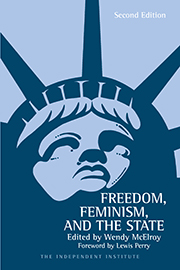On July 26, the New Mexico Court of Appeals reversed a lower court decision that terminated the parental rights of a biological father. The precedent-setting case concerns ‘a deadbolt dad’—that is, a father locked out of his child’s life, in this case by adoption.
At three days old, Mark Huddleston’s son was placed with a family who eventually adopted him. Huddleston learned of his son when the baby was two months old; he immediately pursued custody. The ensuing legal battle took two years and the child is now 2-1/2. He may soon be ripped from the only parents he has known and given to a stranger.
But, if that stranger is a loving biological dad, then doesn’t the father have a right to raise his own son?
The dilemma was created by an adoption agency that acted with no regard for the biological bonds that constitute family. In doing so, it expressed society’s general dismissal of a biological father’s role in adoption. In turn, a district court treated that role with less respect than is customarily accorded to a mother’s.
The question of whom the child calls ‘daddy’ will almost certainly go to the state’s Supreme Court. As a result, a young boy may be psychologically damaged forever. Moreover, a chill may fall over adoptions in New Mexico as potential parents watch their worst fear unfold in court: a biological parent demands custody of a legally adopted child.
The pain and pathos were unnecessary.
The details of this case are as follows.
In 2003, the then-divorced Huddleston broke up on bad terms with a woman who gave birth eight months later. Huddleston, who is also the father of two grown children, said he did not know of the pregnancy.
On April 23, 2004, the re-married Huddleston received a letter from the private agency Adoptions Plus. It alerted him to his possible paternity of a child who had been placed for adoption two months prior.
The next morning, the Huddlestons met with the executive director of Adoptions Plus. She said the agency had known of his possible paternity before the child’s birth and had attempted to contact him. At this point, however, they said he no longer had rights to be asserted.
On April 27, Huddleston filed a lawsuit to gain custody; resulting DNA tests proved his paternity.
At the same time and at Huddleston’s request, the New Mexico Children, Youth and Families Department (CYFD) investigated Adoptions Plus, for whom CYFD is the controlling authority. CYFD found the agency had not made diligent efforts to contact Huddleston and ordered the baby returned to one of its biological parents.
Before the order was enforced, however, the case went to trial with the court permitting supervised visitation to Huddleston. On Jan. 5, 2005, he saw his 11-month-old son for the first time.
On March 10, the court terminated Huddleston’s parental rights.
The judge’s decision was based on two factors: he believed the mother when she said Huddleston knew of the pregnancy; and, the child had bonded with adoptive parents Bobby and Rosario Romero.
They finalized the adoption despite Huddleston’s clear intent to appeal.
He succeeded. On July 26, the Appeals Court found the lower court had “improperly focused on Mark’s pre-birth conduct, and thus the court’s finding that Mark presumptively abandoned the child is not supported by substantial evidence.”
In short, whether he knew of the pregnancy, his consent was still required for the adoption. The judge may have agreed with Huddleston’s argument that spending over two years and $60,000 in pursuing custody was evidence of non-abandonment.
The Court also found that New Mexico law does not close the door on last-minute claims, thus allowing biological fathers to contest an adoption up to the moment it is finalized.
The case has been thrown back to the lower court but it is unlikely to end there. The Rosarios are determined to appeal an unfavorable ruling to the state Supreme Court. For his part, Huddleston is currently filing for immediate visitation rights and ultimate custody. Meanwhile, the child remains with the Romeros; Huddleston has not seen his son in a year.
How can another such nightmare be prevented in New Mexico and elsewhere?
As a solution, some point to putative (or alleged) father registries, which differ from state-to-state. In effect, the registries say that a man who has unprotected sex with a woman must report it to the state within varying time limits surrounding a child’s birth in order to retain his parental rights in adoption. (Huddleston registered in New Mexico after discovering his paternity.)
Others argue that having to register one-night stands in state registries in order to preserve parental rights places an unequal burden upon the father. After all, if a child results, the man is almost automatically held responsible for child support. Why are his rights less automatic than his responsibilities?
Instead, why not simply seek disclosure of all potential fathers and due diligence in contacting them?
Michael McCormick of the D.C.-based American Coalition for Fathers and Children believes the problem is anti-father bias in the family court. He believes Huddleston is the victim of an adoption agency that saw fathers “as a hindrance.”
Whatever solution is implemented, it is not likely to guarantee that another Huddleston-style tragedy will not occur; sometimes biological fathers cannot be found. But taking a father’s rights and consent as seriously as a mother’s would vastly reduce the incidence.
Meanwhile, people who wonder why ‘foreign’ adoptions are so popular need look no farther than Huddleston. Adopting a child from China may be a bureaucratic maze, but it eliminates the prospect of a biological parent showing up on the doorstep.









